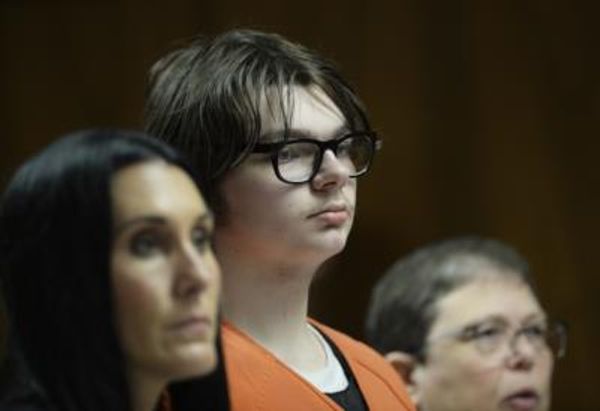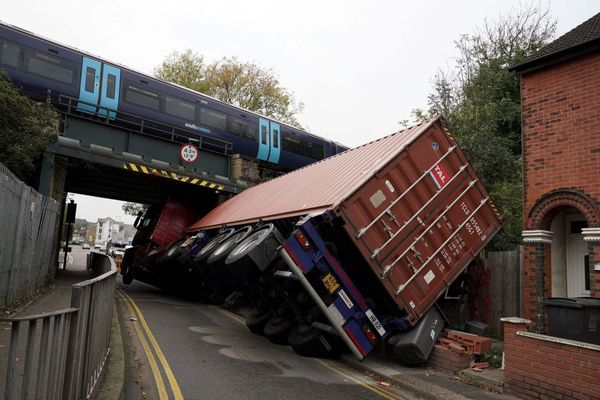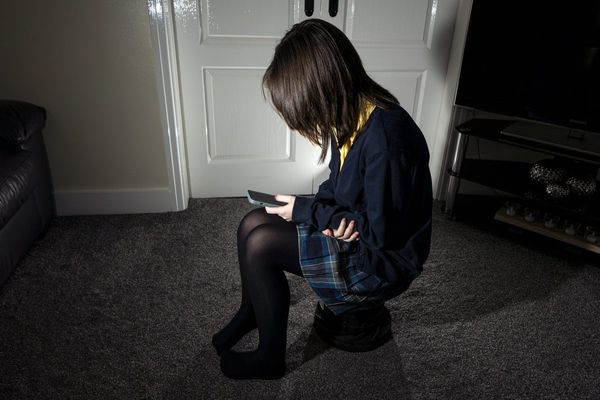
A shopping basket (PA)
(Picture: PA Wire)Britain is being hit by “real food poverty” for the first time in a generation, the boss of Tesco warned on Tuesday.
John Allan, chairman of the supermarket giant, told how more and more of its customers were having to rely on food banks with many of them struggling to both heat their homes and “feed their families”.
Some of them were arriving at the checkout and saying “Stop when you get to £40” because they are so worried about going over their weekly budget.
Asked on BBC Radio 4’s Today programme how the cost-of-living crisis was hitting Tesco customers, he said: “Many of them are struggling to both be able to heat their homes and feed their families.
“More and more of them are having to resort to food banks and we support substantially a lot of local charities and a lot of local food banks.
“There is no doubt at all, people who have never had to go to a food bank are now having to do so.
“We are seeing real food poverty for the first time in a generation.”
He backed a windfall tax on energy giants and argued for the National Insurance hike to be “rolled back”.
He added: “This cost-of-living crisis, people talk about percentage increases but actually it’s absolute increases for many people and the people on lowest incomes, the hardest pressed, it’s much, much more serious and much more difficult to cope with than those on higher incomes.
“I was in some stores on Friday and I was hearing for the first time for many years of customers saying to check-out staff ‘stop when you get to £40 or something, I don’t want to spend a penny over that” as opposed to having everything checked out and settling the bill at the end.”
Calling for more support for people with their energy bills, he added: “There is an overwhelming case for a windfall tax on profits from energy producers fed back to those most in need of help with energy prices.
“That would be the single biggest thing that could be done.”
Stressing he was expressing a personal view, he added that he believes that the energy giants are expecting such a short-term levy and doubted they would be “much fazed” by it.
He also called for business rates to be reformed and “pulled down” to help small and medium sized firms, some of which he believes could stuggle to survive the current crisis.
On the 1.25 percentage point rise in National Insurance contributions in April, he added: “I would not have done it.
“Hitting people on modest incomes, disproportionately, is absolutely the wrong time to do it.”
Doing the Government media round ahead of the Queen’s Speech, police minister Kit Malthouse told of “alarm” at soaring inflation, which could hit double figures later this year, in the “awful” cost-of-living crisis.
Boris Johnson and Rishi Sunak are monitoring it on an almost daily basis to decide how to offer more help to struggling families, he added.
The Government would be “agile” in its response, he said, stressing new laws to deal with it could take months if not more than a year to get through Parliament and did not rule out an Emergency Budget.
“We look with alarm at the predictions that the Bank of England has made just in the last week or so of inflation peaking towards the end of the year and we will have to think carefully about what our response to that might be,” Mr Malthouse told Sky News.
He admitted it was “incredibly challenging” for some families with energy bills having jumped and the spiralling cost-of-living.
“Obviously in a time of very volatile fuel prices, we need to see a little more I think he (the Chancellor) said yesterday, about where that fuel price is going to go before we design what may come forward,” he added.
“But we are very focused on trying to give people as much help as we can. We have put £22 billion now of overall assistance into helping people, whether it’s through their fuel bills or through the Community Hardship Fund now expanded to £1 billion, focused on those who are suffering the most in this awful crisis.”
With Mr Johnson and Mr Sunak giving strong indications of more support to come, Mr Malthouse explained: “I do know that they are looking very, very carefully, almost every day at how people are struggling with their prices of food and fuel and the choices that they are having to make.
“And I know that they are giving it careful thought about what the next steps should be.”
But he also stressed that the Government’s “key objective” was to get as many people as possible into work and to have a “thriving, growing economy”.
Ministers have admitted they are not able to totally shield households from the impact of the crisis.







